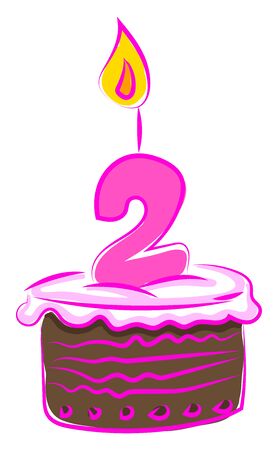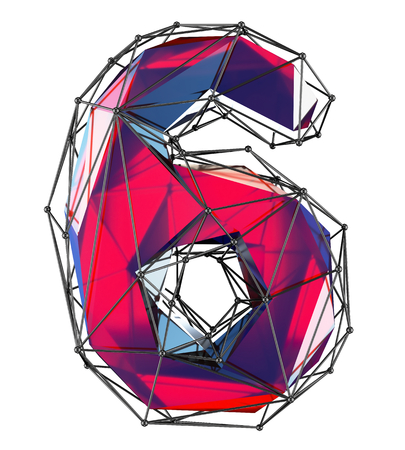Understanding Bazi: An Introduction for the American Context
Bazi, also known as the Four Pillars of Destiny, is an ancient Chinese system that analyzes a person’s birth information to uncover their innate tendencies, strengths, and interpersonal compatibility. For many Americans, this may sound similar to astrology or personality frameworks like the Myers-Briggs Type Indicator (MBTI) or the Enneagram. However, Bazi operates on unique principles rooted in Chinese metaphysics and philosophy. At its core, Bazi decodes a person’s birth year, month, day, and hour into a set of eight characters—each representing specific elements and energies. These elements—Wood, Fire, Earth, Metal, and Water—interact with one another to paint a nuanced portrait of an individual’s character, potential challenges, and relationship dynamics. When translated into Western terms, think of Bazi as a personalized blueprint that combines aspects of psychology, energy profiling, and even life coaching. This system can be used not just for fortune-telling but as a powerful tool for self-discovery and personal growth. As we explore Bazi compatibility analysis in this article series, we’ll bridge Eastern wisdom with American values of self-improvement and relational insight, demonstrating how this time-tested approach can be both accessible and transformative for contemporary American readers.
2. The Role of Compatibility in Personal Growth
When most people hear about Bazi compatibility, their first thought might be love and marriage. However, in American culture—where self-improvement and personal growth are core values—Bazi compatibility can be seen as a powerful tool for self-reflection beyond relationships. At its heart, Bazi isn’t just about finding the perfect partner; it’s about understanding how our interactions with others reveal hidden parts of ourselves and open doors to self-discovery.
Bazi compatibility analysis operates like a dynamic mirror. It reflects not only how we get along with others but also where our strengths and weaknesses lie. For instance, if your Bazi chart shows frequent clashes with certain personalities, this isn’t just “bad luck”—it’s an invitation to examine your own patterns, triggers, and growth opportunities. Instead of merely labeling connections as “good” or “bad,” Bazi encourages us to ask deeper questions: Why do certain traits challenge me? What qualities do I attract or repel? How can I use these insights for my personal evolution?
Let’s break down some key dimensions where Bazi compatibility promotes self-growth:
| Dimension | Self-Reflection Prompt | Growth Opportunity |
|---|---|---|
| Communication Style | How do I express myself under stress or joy? | Develop more mindful communication habits |
| Emotional Triggers | What types of people push my buttons? | Increase emotional intelligence and resilience |
| Conflict Resolution | How do I typically handle disagreements? | Cultivate patience and adaptability |
| Value Alignment | Where do my priorities clash with others’? | Clarify and strengthen personal boundaries |
| Support Systems | Who naturally supports or challenges me? | Build intentional, empowering relationships |
This approach is especially resonant in the U.S., where individual agency and growth mindset are celebrated. Rather than viewing compatibility as fate set in stone, Bazi offers a framework for active self-inquiry. By recognizing how every connection is both a lesson and a catalyst, we transform everyday interactions into stepping stones on our journey of personal development.

3. Case Examples: Navigating Differences and Strengths
To make Bazi compatibility analysis relevant for an American audience, let’s look at some everyday scenarios where this ancient wisdom led to meaningful personal growth and improved relationships. Consider Emily and Jake, a married couple from Seattle who frequently clashed over decision-making styles. Through a Bazi reading, Emily discovered her chart indicated strong Wood energy, representing initiative and vision, while Jake’s predominant Metal element signaled logic and structure. Instead of viewing their differences as obstacles, they learned to appreciate how Emily’s creativity balanced Jake’s pragmatism. This shift in perspective not only reduced tension but also fostered mutual respect, as each partner recognized the unique strengths the other brought to the relationship.
In another example, Marcus, a tech manager in Austin, struggled with team communication. After a Bazi consultation revealed his Fire element—associated with passion and quick action—he realized his intense approach sometimes overwhelmed his Earth-element colleagues, who valued stability and gradual progress. By adjusting his leadership style to include more patience and listening, Marcus saw team morale improve and project outcomes exceed expectations. This case highlights how self-awareness through Bazi can translate into actionable steps for better workplace interactions.
Finally, consider Lisa, a college student in Chicago facing challenges balancing academics and social life. Her Bazi profile showed a strong Water influence, indicating adaptability but also tendencies toward indecision. Recognizing this helped Lisa set clearer priorities and boundaries with friends and professors alike. She began using journaling—a familiar American self-help tool—to track her moods and choices in light of her Bazi elements. Over time, she reported greater confidence in her decisions and a deeper sense of self-understanding.
These stories demonstrate that integrating Bazi compatibility insights doesn’t require abandoning American values or cultural norms. Instead, it offers fresh frameworks for self-discovery and relationship-building, empowering individuals to turn differences into opportunities for personal growth.
4. Bazi Analysis as a Self-Discovery Tool
Bazi, also known as Four Pillars of Destiny, is more than just a compatibility tool—its a powerful framework for self-discovery and personal growth. For Americans seeking practical ways to understand themselves better, Bazi offers a culturally novel yet surprisingly actionable approach. Through analyzing your Bazi chart, you can uncover hidden strengths, recognize challenges before they arise, and set meaningful personal goals. Heres how you can leverage Bazi in your journey of self-improvement.
Uncovering Hidden Talents through Your Bazi Chart
Each element and animal sign in your Bazi chart represents specific attributes and natural inclinations. By interpreting these symbols, you may discover talents or characteristics that have been underutilized in your daily life. For instance, someone with strong Wood elements may excel in growth-oriented roles, creativity, or leadership. The table below gives a quick reference to common Bazi elements and their potential strengths:
| Bazi Element | Key Traits | Potential Talents |
|---|---|---|
| Wood | Growth, flexibility, vision | Creativity, leadership, entrepreneurship |
| Fire | Passion, communication, energy | Public speaking, teaching, motivating others |
| Earth | Stability, reliability, support | Mediation, project management, counseling |
| Metal | Discipline, precision, justice | Analysis, law, finance |
| Water | Adaptability, intelligence, intuition | Research, strategy, creative writing |
Navigating Life’s Challenges with Bazi Insights
Bazi analysis doesnt just highlight what youre good at—it also flags potential stress points or obstacles. For example, if your chart reveals an imbalance of elements (like excess Fire but little Water), this might indicate tendencies toward burnout or impulsiveness. Recognizing these patterns can help you anticipate challenges and develop coping strategies before issues escalate. This proactive mindset aligns well with American values of self-sufficiency and personal responsibility.
Setting Personal Goals Aligned with Your Destiny Pattern
Bazi can be especially helpful for goal-setting. Instead of generic New Year’s resolutions or career ambitions disconnected from who you really are, use your Bazi chart to craft objectives tailored to your innate traits and life cycles. For instance:
- If your chart shows strong Metal during certain years, focus on developing discipline-driven projects or financial planning.
- If Water dominates your upcoming cycle, consider exploring new educational opportunities or creative pursuits.
- If you have a supportive Earth presence now, deepen relationships and build community connections.
Integrating Bazi into Everyday Life in the U.S.
You don’t need to abandon Western self-help methods; instead, blend Bazi insights with familiar tools like journaling or coaching. Start by reflecting on your charts findings each month and adjust your strategies accordingly. Over time, this East-meets-West approach fosters greater self-awareness and resilience—qualities highly valued in American culture.
5. Integrating Bazi Awareness with Modern Personal Growth Trends
As personal growth becomes increasingly mainstream in the United States, individuals are blending time-honored wisdom with contemporary self-development frameworks. Bazi compatibility analysis, rooted in Chinese metaphysics, offers a unique lens that complements well-established concepts such as emotional intelligence (EI), mindfulness, and the growth mindset. By integrating Bazi into these popular trends, we can adopt a more holistic approach to self-discovery and improvement.
Emotional Intelligence Meets Bazi Self-Awareness
Emotional intelligence focuses on understanding and managing our own emotions while empathizing with others. Bazi provides a personalized blueprint of our innate tendencies, strengths, and stress triggers based on birth data. When Americans use Bazi as a reflective tool alongside EI practices, they gain deeper insight into their emotional patterns—why certain situations trigger them or which relationships feel harmonious versus challenging. This awareness helps to tailor EI strategies, making them more effective and actionable in daily life and relationships.
Enhancing Mindfulness through Bazi-Informed Reflection
Mindfulness encourages present-moment awareness and non-judgmental acceptance. Integrating Bazi analysis into mindfulness routines enables individuals to notice habitual reactions shaped by their elemental makeup or compatibility dynamics. For example, someone whose chart indicates a strong Fire element might recognize their tendency toward impulsiveness or passion-driven actions during meditation or journaling. This fosters greater self-compassion and an ability to consciously choose responses over automatic reactions—key tenets of American mindfulness culture.
Cultivating a Growth Mindset with Bazi Insights
The growth mindset emphasizes the belief that abilities can be developed through effort and learning. Bazi doesn’t dictate fate; rather, it reveals potential paths for development. By identifying areas of imbalance or challenge in one’s chart, individuals can set targeted goals for personal evolution—mirroring the American ethos of self-made success. For instance, if Bazi suggests challenges in communication or collaboration, adopting a growth mindset means actively seeking opportunities to strengthen those skills instead of resigning to limitations.
In sum, bringing together Bazi compatibility analysis with leading-edge personal development philosophies allows Americans to personalize their self-growth journey. This integrated approach respects tradition while embracing innovation, empowering individuals to become more self-aware, resilient, and adaptable in the ever-evolving landscape of modern life.
6. Taking the First Steps: Accessible Resources and Next Actions
Your Roadmap to Bazi Self-Discovery
Embarking on a journey of personal growth through Bazi compatibility analysis might feel overwhelming, especially if you’re new to Eastern metaphysics. The good news is that this ancient system is becoming increasingly accessible in the U.S., with modern resources tailored for culturally diverse audiences. Here’s how you can start exploring Bazi and apply its insights to your self-development journey.
Find Reliable Bazi Calculators and Guides
The first step is to calculate your own Bazi chart, which requires your date and time of birth. Numerous reputable online calculators are available, but look for ones that offer English-language explanations and cultural context. Sites like Joey Yap’s Bazi Calculator or specialized apps provide user-friendly interfaces and guidance suitable for American users.
Read Books and Articles with Cultural Relevance
While many foundational texts are in Chinese, there are now several books and blogs written by Asian American practitioners or cross-cultural experts. Titles such as “The Power of BaZi” by Joey Yap or “Bazi: The Four Pillars of Destiny” by Jerry King break down key concepts using relatable examples and plain language. Reading articles from multicultural wellness platforms can also bridge traditional wisdom with contemporary self-help perspectives.
Engage with Community-Based Learning
Bazi doesn’t have to be a solitary pursuit. Look for local workshops, online forums, or Meetup groups focused on Chinese metaphysics or astrology within your city. Many Asian community centers in major U.S. cities host introductory classes or cultural events featuring Bazi readings. Participating in these spaces not only helps you learn but also connects you with others interested in holistic self-discovery.
Consult Professional Practitioners
If you want a personalized interpretation, seek out certified Bazi consultants who understand both the technical aspects and the nuances of Western culture. They can help translate your chart into actionable advice for relationships, career planning, and personal development—often using language and analogies familiar to an American audience.
Next Actions: Set Your Intentions
Start by setting clear intentions about what you hope to learn from Bazi compatibility analysis—whether it’s improving relationships, making career choices, or understanding your innate strengths. Approach your study as a journey of self-reflection rather than a rigid prediction tool. Keep a journal of your discoveries, noting how Bazi insights resonate with your real-life experiences.
Remember, personal growth is an ongoing process, and integrating Bazi into your path can provide both structure and inspiration. By tapping into accessible resources and taking proactive steps, you’re not just learning about ancient wisdom—you’re actively shaping a more mindful, empowered version of yourself.


